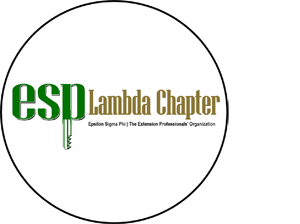 Ugh. Another Meeting…
Ugh. Another Meeting…
As a former teacher my entrance to cooperative extension came with lots of learning and very often beginning before I was ready. Great for learning but very uncomfortable and full of failures. As a teacher, I was a part of many meetings, but leading was less frequent. Of course, leading students and working with teams, but those didn’t feel like meetings to me. But why? Maybe because the word meeting has grown a less than stellar reputation. Or because working with elementary students always includes an element of creativity and fun to keep them engaged. Meetings were often a chance to connect with our teams after the students left for the day. A chance to vent, share joys, and plan for the week ahead.
Meetings are at the core of our work in extension. I remember some of my first meetings after I was asked to join the leadership team. I often left singing the lyrics to a country song in my head. “a little less talk and a lot more action.” All we did was talk and often didn’t come back to it until months later when we said, “Didn’t we say we were going to…” And then when I was leading a weekly meeting with a group that was burnt out and disconnected, I knew I wanted to create something different. I, of course, did a little research on how to run a meeting. And found a meeting template. Some folks loved it, some found it too intense, and it didn’t always fit our needs. Here I was thinking there must be a right way to run a meeting and I went straight to logistics because by nature I love creating order, structure, and routine- perhaps the teacher in me. But that doesn’t always create meaningful and engaging experiences. So, there must be a way to balance the two.
An example of starting before I was ready… I took a risk to bring a large yet completely disconnected team together. My hope was to help these teams, working in silos, to build connection and see how they were connected to the same mission and vision while valuing and respecting each teams uniqe contribution. To much for one meeting? Maybe. And my learning, for some, I provided way to much informaition leading up which bolged folks down in the building connection. Connection before content is better strategy. I had some work to do after that to ease some tensions.
We’re “cooperative” extension. When tensions arise and common purpose and values get fuzzy, this phrase often comes up for me. And when it makes sense, I find ways to drop it as a gracious reminder for myself and others. Cooperative- involving mutual assistance in working toward a common goal. If only it always felt that way! As an organization with a long, rich history and a framework that supports us in evolving and adapting our programs to meet the needs of communities- finding shared purpose and inclusive approaches are key to our success but getting there can be a challenge. Especially when values and purpose are breezed over to “respect people’s time.” But if we’re not clear on why we’re meeting and everyone is coming with a different purpose and the facilitator is keeping the meeting short, are we really respecting people’s time?
I promise you, I’m not an expert but I have learned a few things. Sometimes there doesn’t need to be a task. Adults still want to have fun. Connection comes before content. And always purpose before logistics. I’ll forever be learning and creating my masterpiece when it comes to meetings. And as author Priya Parker might describe it, the gathering is more like an art.
And the teacher in my also loves a good book club! If you are interested in exploring new ways to create engaging and meaningful experiences that have folks looking forward to gathering, you’re invited to gather with us! Grab a copy of The Art of Gathering: How We Meet and Why It Matters by Priya Parker as we, connect with colleagues, read, and reflect on new strategies, while supporting each other in planning or recreating more meaningful and inclusive spaces together.
Before you join, we ask that you come ready to fully engage in the process- including the reading, and the virtual gatherings and determine a specific focus area (meeting, group, team, committee etc.) for working through the reflective process. An opportunity to learn and reflect with others and apply directly to your work as we go. Our virtual gatherings will be held bi-weekly from 1pm to 2pm, beginning March 14.
(3/14, 3/28, 4/11, 4/25, 5/9, 5/23).
Consider registering by March 1st to give yourself time to grab a copy of the book, read the first two chapters and get the details on how to prepare for our first gathering on March 14. But if your able to make that happen before we gather, were happy to accept your application after March 1st. Registration: https://cornell.ca1.qualtrics.com/jfe/form/SV_0ivH1cCXIxN9gZE
Let’s create some art together! And please reach out with any questions (kmc86@cornell.edu).
All the best,
Kelly Campbell
ESP Lambda Chapter is co-sponsoring/encouraging others to join this conversation as we hear that “getting people to show up and be engaged in advisory committees, boards, and leadership is a need. Kelly Campbell will be our keynote speaker for our annual meeting in December – sharing lessons learned through the book reading series. Join us if you can, share with others! All are invited.
